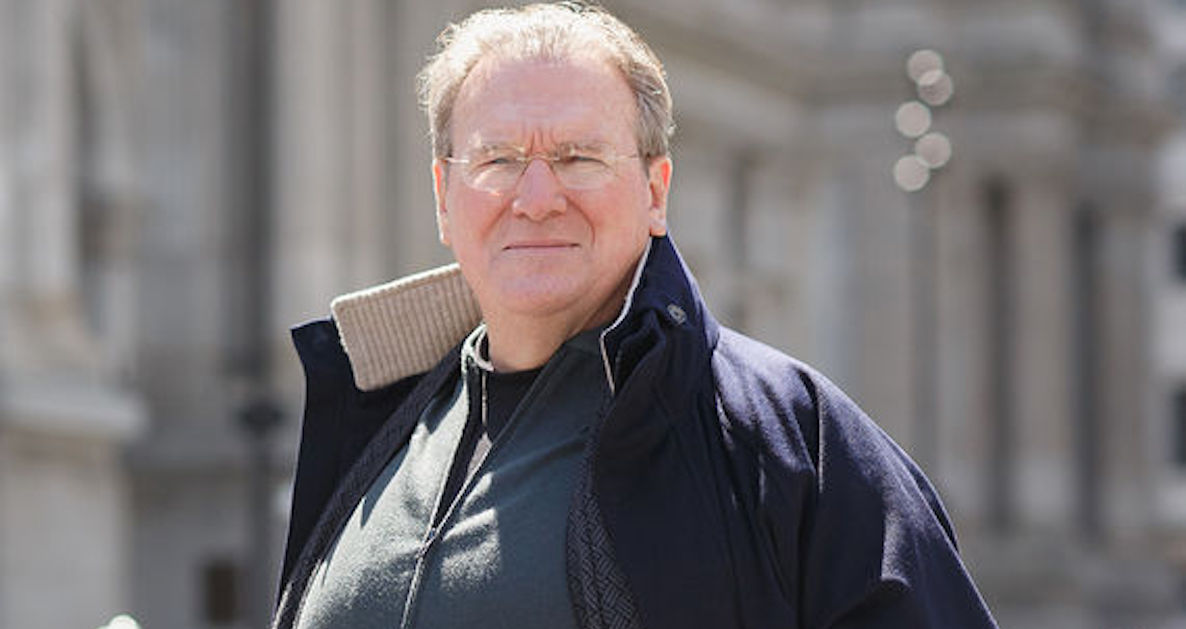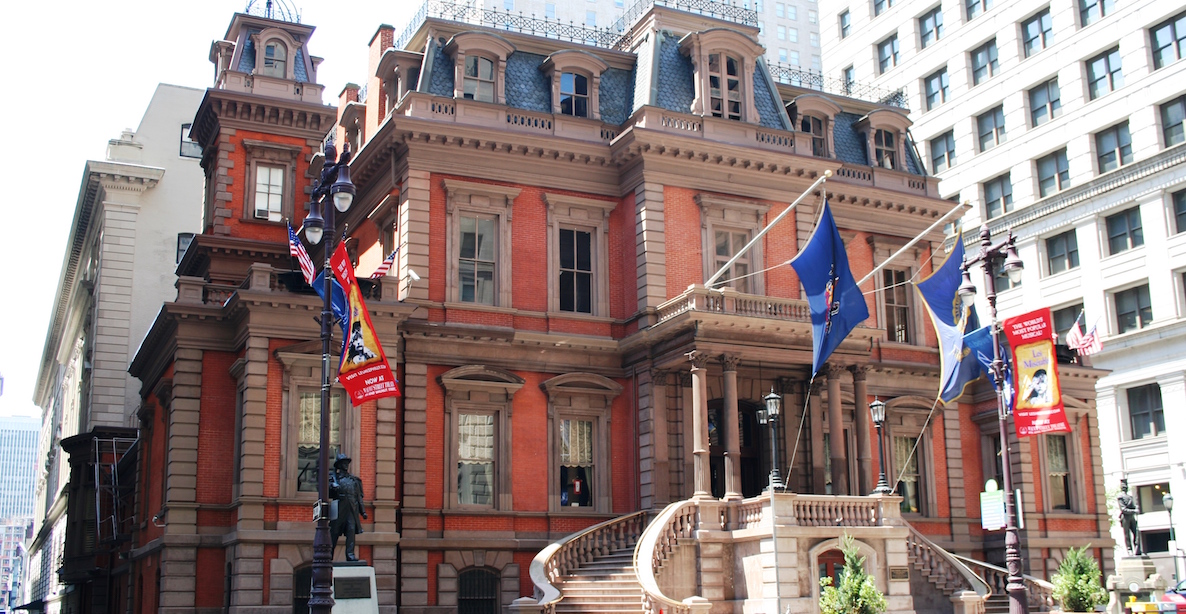Hey, did you hear? GQ says we were 2018’s city of the year. And The New Yorker says Larry Krasner is “reinventing the role of the modern prosecutor.” And, seriously, the same storied title—the freakin’ New Yorker—posits Gritty as the antidote to toxic masculinity in the MeToo era. But that’s not the most ludicrous of our recent national praiseworthy press. Given our worst-in-the-nation statistical standing, that would be Governing magazine’s proclamation that Mayor Kenney is leading a new approach in the battle against poverty.
Pretty cool, huh? Philly is having a national moment. But wait. The Inquirer ran an editorial this week, citing a story in the Israeli newspaper Haaretz that references our declining life expectancy rate due to gun violence and opioids and holds Philly up somehow as a symbol of the end of “American empire.” The Inquirer concludes that our juxtaposing narratives—the good feelings about the Eagles and our restaurants and Gritty against the shame of our poverty—is proof that ours is a “tale of two cities.”
Tell us what Philly should be talking about Do Something
That’s a tempting and convenient conclusion. Handwringing over our “tale of two cities” narrative is old hat; I’ve even written the phrase once or twice myself. But when the stakes are high, the times call for going beyond typical sloganeering. The truth, as Center City District CEO Paul Levy, our leading evangelist for inclusive pro-growth policies, is eager to remind us, is that “we’re one city not growing fast enough.” Rather than default to easy shibboleths, maybe our reaction to the scourge of poverty ought to be to just try a bunch of new shit—because the old ways have gotten us what we’ve always gotten. (When LBJ announced the War on Poverty in 1965, the poverty rate was 19 percent; 50-plus years and $6 trillion later, it’s 16 percent).
The point is, much of the national press coverage of our town of late has been superficial in nature, and our reaction to it ought to not be similarly breathless. The stories these last last few months that advance a view of Philadelphia as a city on the move tend to the notion that old Philadelphia—the city of insecure losers who booed Santa Claus—is fast becoming a thing of the past. Problem is, we’ve been all too eager to seize on this too-pat narrative, because it plays to our neediness. Given our history—losing the capitol to D.C., losing the financial center to New York, our baseball team losing more games than any team in professional sports history—we’ve long wanted to be seen as an elite city.
Blaming a political leader for our own lack of seriousness is, in the end, a cop-out. We have a big election this year and we can say to those who would lead us: We need less Gritty, and more bold solutions
The danger, of course, is in the difference between telling and showing. You can’t just market yourself to greatness. You need to do the hard work to get there. And patting ourselves on the back because Meek Mill was let out of jail or because the Eagles won the Super Bowl does nothing to move the needle in terms of making Philadelphia a safer, more prosperous and more equitable city.
Don’t get me wrong: There’s a ton of great stuff happening here, which the GQ piece in particular touches on. But all of the stories about Philadelphia’s resurgence are actually formulaic, and we ignore that at our peril. The new Philadelphia story out there is quaint and quirky, and touches on the Eagles, Meek Mill, millennials, and a top prosecutor who used to sue the cops.
That’s why there is hardly a mention in most of these stories about our worst-in-the-nation poverty, our exploding murder rate, our highest-in-the-nation tax rate, or our anemic economic growth rate compared to peer cities. The problem with most of the recent Philly-related national stories—and our collective need for them—is not that they’re factually wrong, but that, in their simplicity, and in our needy response to them, they encourage us to rest on our laurels. A boom, after all, is a terrible thing to waste, and patting ourselves on the back—as we did for merely making the second round in the Amazon sweepstakes—doesn’t help us cohere around a strategy that takes Philly from good to great.
What would you rather be known for? Gritty, or the fact that, over at Penn, they’re kinda curing cancer? Shouldn’t that be our calling card? The city that is going to make America healthier?
I know, I know. There I go again, being all Negadelphia. Well, I prefer to think of it as Realadelphia. The best, most inspiring mayor of Philadelphia in my lifetime was Ed Rendell, particularly in his first term, who perfectly mixed infectious optimism with a refusal to allow us to bury our collective head in the sand. He was fighting to make things better and not being negative when, in Buzz Bissinger’s seminal A Prayer For The City, we see Rendell opening a vein before a high-ranking Clinton administration official: ”Forget all the good things I’ve done,” Rendell begs. ”Philadelphia is dying. It’s happened a lot more slowly since I took office, but we’re dying.’’
We need to be as real now about our challenges as Rendell was then. That entails authoring our own Philadelphia story, in part because the feel-good Philly stories of late don’t even land on the right highlights. What would you rather be known for? Gritty, or the fact that, over at Penn, they’re kinda curing cancer? Shouldn’t that be our calling card? The city that is going to make America healthier?
Articles by Larry Platt Read More
Telling that story requires media, national and local alike, to do more than mere stenography. Too often, the daily drumbeat of media coverage serves as a re-enforcement of the status quo rather than a challenge to it. We need less think pieces about Gritty and more surfacing of ideas, more arbitrating between competing sets of facts, and more thought leadership in our public conversation.
Let’s zero in on just one case study. Last month, the Inquirer ran a story by Juliana Feliciano Reyes, a quite good reporter, headlined “How Philly Is Using City Jobs to Tackle Poverty.” It was a feature full of praise for the Kenney administration’s City as Model Employer career pathways program, part of the administration’s Workforce Development Plan. In it, young people and unemployed adults get work experience within government departments that sets them up for permanent jobs with the City.
Sounds fine. But…tackling poverty? According to the story, we’re talking about 75 jobs in the Streets Department, 41 as a result of the Fleet Department’s automotive apprenticeship program, and 10 trainees for airport customer service jobs. The problem, then, is obvious: We’re in a poverty crisis, and holding up incrementalism as sweeping change actually impedes progress by painting the false impression that something bold is being done when it’s not.
There’s another, more pernicious, problem and it goes to the underlying philosophy of the news story. “Government jobs have long been seen as a pathway to the middle class,” Reyes writes. “Though they’re not what they once were, they’re still very much the elusive good job: predictable hours, solid pay and benefits, job security. They’re often unionized, and many don’t require a college degree. And the City of Philadelphia is the second-biggest employer in the city, after the University of Pennsylvania. It’s a natural solution—one of them, at least—to Philly’s persistent poverty rate…”
The problem with most of the recent Philly-related national stories—and our collective need for them—is not that they’re factually wrong, but that, in their simplicity, and in our needy response to them, they encourage us to rest on our laurels.
Without knowing it, Reyes zooms by a gaping philosophical issue. Is a city in the delivery of services business, or is it, in effect, a glorified employment agency? Reyes sees opportunity in the fact that government is the second-biggest employer in the city, when it’s actually a sign of stagnation. Cities that have to hire themselves to prosperity are cities that eventually implode. When neither of a city’s two top employers pay taxes—in this case, as Reyes reports, the city itself and Penn—it buttresses Paul Levy’s astute critique that we’re not focused on growing out of poverty and into prosperity.
This is, of course, just one story on one day, but you can pick any story anywhere in our public consciousness on any day. You’re likely to find that we’re mired in a kind of auto-pilot conversation about really big challenges. We’re dazed when we should be energized, loyal to the tried and true past when we should be experimenting and failing fast. Part of that, of course, is due to a failure of leadership. After all, can you name Jim Kenney’s vision for Philadelphia, other than as a city that either drinks less soda or pays a lot to drink more of it?
But blaming a political leader for our own lack of seriousness is, in the end, a cop-out. We have a big election this year and we can say to those who would lead us: We need less Gritty, and more bold solutions.








